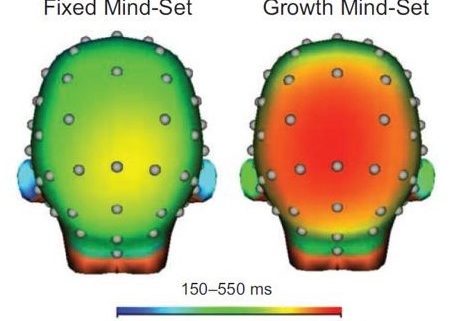Can Adults Benefit from the Concept of Not Yet too? Yes they can!
 Do you or those with whom you work or live often give up or shut down when a skill or concept is a bit out of reach? Are you or those you work with using language like; “it can’t be done,” “I can’t do it,” “I don’t know how,” or “It can’t happen?” You might be dealing with a fixed mindset that needs to be shifted so you (or the person in question) can grow.
Do you or those with whom you work or live often give up or shut down when a skill or concept is a bit out of reach? Are you or those you work with using language like; “it can’t be done,” “I can’t do it,” “I don’t know how,” or “It can’t happen?” You might be dealing with a fixed mindset that needs to be shifted so you (or the person in question) can grow.
This past year, I’ve talked a lot about the concept of “Not Yet” when presenting to business leaders and adults who work with children, teens and young adults. The idea of “not yet” here comes from Carol Dweck who discusses the “Not Yet” concept when presenting about shifting the mindset of young people. When we use the concept of “not yet,” she explains, we set children up with a growth mindset—one that allows them to see that while they have “not yet” mastered a new concept, they are on their way. They are making progress.
Those who had a fixed mindset only focused on the fact that they hadn’t mastered a skill “now” and therefore were more likely to cheat and assume they were unlikely to improve. “Not Yet” can make a big difference. Interestingly, they use the concept of “not yet” in my children’s school. And yes- I think we are missing something if we only apply it to kids.
So what about the concept of “Not Yet” for adults?
Whether you are an entrepreneur, parent, coach, teacher, CEO or business employee, you, too, have to shift your mindset to one that embraces “not yet.” Do you believe you can improve? Do you have room to try out new skills so you can get better? As adults, it’s so easy to get stuck in a rut perpetuating the myth of “this is how it’s always been done” or “old dogs can’t learn new tricks.”
Frankly, I think that is a bunch of garbage.
Do you want to employ the concept of “not yet” and change your results? Then, let’s go for it.
Here are some quick tips to keep in mind:
- Try new skills with the knowledge that you WILL improve. You may not have the concept “yet” but it’s simply a matter of time and practice. Believe that you will improve and master the concept.
- Stop the negative self talk. Having a negative nag in your ear is never a helpful strategy for success. Answer negative self talk with the concept of “not yet” and then keep practicing and working towards your goals.
- Show yourself the evidence: As you work to improve, chart or write down your progress. Learning to become a “runner” for the first time? Write down how long you were able to run for today. Trying to stay calm in the morning rush without yelling? Chart how long you were able to make it this week and what strategies worked for you. Trying to get better at presenting at work in front of others? Write down what you did better today (clear voice, clear concept, succinct points, etc). When you look at the evidence, you will see how you are improving over time.
- Keep going: If Rome wasn’t built in a day, 1000 practices before you become an expert and it takes at least 30 days to create a habit, how long will it take you to see improvements? That might seem like one of those convoluted word problems from middle school but the point is—improvements take time. Don’t stop. Persevere. Engage that indomitable spirit and you will leave your fixed mindset in the dust.
Remember to embrace yourself as a learner who can improve. You are “in process.” You may not have the skill, the concept, or the knowledge today—but that doesn’t mean you won’t in time. You just don’t have it yet.

Carol Dweck: “The Power of Believing That You Can Improve”.
Dweck, C. (2012) Mindset: How You Can Fulfill Your Potential, New York: Random House.

















